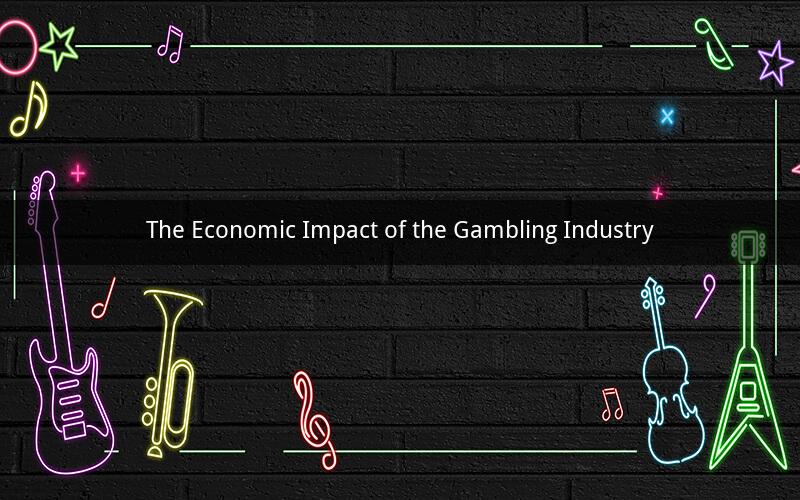
The gambling business, a sector often overshadowed by its controversial nature, has been a significant force shaping the global economy. From land-based casinos to online betting platforms, the industry's reach is far and wide, affecting various economic aspects. This article delves into how the gambling business impacts the economy, exploring both positive and negative repercussions.
1. Job Creation and Employment
The gambling industry is a major employer, generating millions of jobs worldwide. Casinos, racetracks, and sports betting outlets offer employment opportunities in a variety of roles, from dealers and security personnel to managers and IT specialists. The industry's job creation potential is particularly pronounced in regions where the economic climate is less favorable, as gambling facilities often become a source of income and hope for local residents.
2. Revenue Generation
One of the most apparent impacts of the gambling industry on the economy is revenue generation. Governments around the world collect substantial tax revenues from gambling operations, which are often used to fund public services and infrastructure projects. Additionally, the industry contributes to local economies through taxes on wages, licensing fees, and other levies.
3. Economic Growth
The gambling industry can stimulate economic growth by attracting tourists and generating additional revenue in related sectors, such as hospitality and entertainment. For instance, Las Vegas has become a global hub for tourism, contributing billions of dollars to the local economy. Furthermore, the industry has spurred the development of new technologies, such as mobile gambling applications and sophisticated surveillance systems, creating opportunities for innovation and economic diversification.
4. Social Costs
Despite the economic benefits, the gambling industry also incurs significant social costs. Problem gambling, addiction, and related mental health issues can lead to financial ruin, family breakdown, and other social problems. These costs can outweigh the economic benefits, especially when considering the long-term implications of gambling addiction on individuals and society.
5. Legal and Ethical Concerns
The gambling industry is often mired in legal and ethical controversies. Corruption, money laundering, and organized crime have been associated with some gambling operations, posing risks to both the economy and public safety. Moreover, the industry's reliance on high-stakes bets can lead to financial instability and market manipulation.
5 Questions and Answers
1. Question: How does the gambling industry contribute to job creation?
Answer: The gambling industry generates employment opportunities across various roles, including dealers, security personnel, managers, and IT specialists, contributing to job creation in regions where the economic climate is less favorable.
2. Question: What are the main sources of revenue for the gambling industry?
Answer: Revenue is generated through taxes on wages, licensing fees, and other levies, as well as from the gambling activities themselves, such as bets placed on casino games, sports events, and lottery tickets.
3. Question: Can the gambling industry stimulate economic growth?
Answer: Yes, the gambling industry can stimulate economic growth by attracting tourists and generating additional revenue in related sectors, such as hospitality and entertainment, as well as by fostering innovation through the development of new technologies.
4. Question: What are the social costs associated with the gambling industry?
Answer: Social costs include problem gambling, addiction, and related mental health issues, which can lead to financial ruin, family breakdown, and other social problems, potentially outweighing the economic benefits.
5. Question: What legal and ethical concerns are associated with the gambling industry?
Answer: The gambling industry is often associated with corruption, money laundering, and organized crime, posing risks to both the economy and public safety. Furthermore, the industry's reliance on high-stakes bets can lead to financial instability and market manipulation.